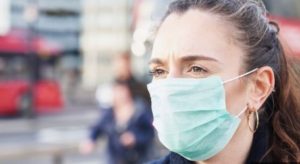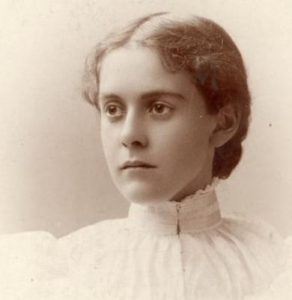Introduction
 With the outbreak of the coronavirus epidemic, people in many countries around the world have started wearing face masks to protect both themselves and others they come into contact with. In this programme we discuss whether wearing masks in public can help prevent the spread of coronavirus in the community.
With the outbreak of the coronavirus epidemic, people in many countries around the world have started wearing face masks to protect both themselves and others they come into contact with. In this programme we discuss whether wearing masks in public can help prevent the spread of coronavirus in the community.
はじめに
コロナウイルスの流行に伴い、世界中の多くの国でマスクを着用するようになりました。それは自分自身に加え、自分と接触する相手方も守るためです。この番組では、公共の場でのマスク着用が、ほんとうに地域社会でのコロナウイルス蔓延の防止につながるかどうかを議論します。
Face masks have long been popular in some Asian countries but with the spread of Covid-19, they’re increasingly being seen in other parts of the world too.
顔に掛けるマスクはアジアで昔から普通に使われている国もありましたが、新型コロナウイルの蔓延に伴い、世界の他の地域でも見られるようになってきています。
Wearing a protective mask or face covering is nothing new. Medical masks have a long history from the plagues of medieval Europe to nineteenth century outbreaks of cholera in the United States, but when did they start to be commonly used? When and where were face masks first widely used?
保護マスクやフェイスカバーの着用は何も新しいことではありません。医療用マスクには、中世ヨーロッパの疫病から19世紀のアメリカでのコレラの発生まで長い歴史がありますが、いつ頃から一般的に使用されるようになったのでしょうか?フェイスマスクが最初に広く使用されたのはいつ、どこででしょうか?
a) 1855 in Vienna,
b) 1905 in Chicago, or
c) 1955 in London.
a) 1855年 ウィーン
b) 1905年 シカゴ
c) 1955年 ロンドン (答はあとで)
Now, face masks may inspire confidence but what is the evidence that they actually protect the wearer from contracting the virus or prevent infected people from spreading the virus to others?
さて、フェイスマスクを着ければ気が休まるかもしれませんが、実際に着用者をウイルス感染から守ったり、感染者のウイルス拡散を防いだりするという証拠はあるのでしょうか。
Professor Robert West has conducted a review of over twenty studies looking into the evidence. Here he is speaking to the BBC World Service programme Health Check…
ロバート・ウェスト教授は、20以上の研究をレビューした上で証拠があるかを調べました。教授がBBCワールドサービスのプログラムヘルスチェックでお話ししています。
********************************************************
 Professor Robert West
Professor Robert West
The evidence is equivocal on it. It doesn’t tell you anything yet – hopefully that will change. So we’re thrown back on first principles and this is why, as in so many areas of public health, you get such a heated debate because people are really relying on their opinion on things and you will have one group who say, ‘Well, it stands to reason’,- the good old ‘stands to reason’ argument – which is: obviously, if you’ve got a covering in front of your face, and you’re speaking or coughing into that covering, it’s going to trap quite a lot of the virus on the droplets you’ll be emitting.
ロバート・ウエスト教授
証拠自体は明らかではありません。まだ分からないのです。うまくいけば、分かるかも知れません。だから初めの原理に立ち返ることになります。公衆衛生では多くの分野でそうであるように、激しい意見の応酬が起こるのです。そこでは人々は物事について自分の意見に凝り固まっていて、そういう人たちから「その話は理にかなっている」という、古くから言い古された議論を聴くことになるのです。つまり、明らかなことですが、顔の前にちゃんとした覆いがあるならば、話したり咳をしたりしたときに放出する飛沫に含まれる大量のウイルスを遮ってくれるという話です。
********************************************************
So far the evidence over whether face masks are helpful or harmful is equivocal – difficult to interpret because it seems to have two opposite or contradictory meanings. Based on current evidence, Professor West feels we cannot say whether mask-wearing is beneficial.
これまでのところ、マスクが役立つか有害であるかについての証拠は曖昧であり、相反する、つまり矛盾した2つの意味があるようなので解釈が下せません。ウェスト教授は、今ある証拠に基づいてマスクを着用することが有益であるかどうかは断言できないと感じています。
Some evidence suggests that wearing masks can prevent the disease spreading and some suggests the opposite.
マスク着用が病気の拡大拡大防止に役立つことを示唆する証拠もあれば、そうでないと思われる証拠もあります。
There may be reasons why wearing masks could actually increase the spread of coronavirus.
マスクを着用することで逆にコロナウイルスの蔓延を増加させる可能性がもしかしたらあるかもしれません。
However for some people, it stands to reason that masks are beneficialーmeaning it is obviously true from the facts.
しかしマスクが有益であると言う人がいることも当然です。つまり、事実が明らかに真実であることを示しているからです。
Actually, the evidence is far from obvious. But everyone has an opinion on the issue and after weeks of stressful lockdown, this can lead to heated debate – discussion or argument in which people become angry and excited.
実際のところ、証拠と言うにはほど遠いです。しかし誰もがこの問題について意見を持っており、数週間にわたるストレスの多い封鎖の後で、これは白熱したデベートにつながるでしょう。議論や論争で怒ったり興奮したりすることになりかねません。
Up until recently, the World Health Organisation said there were two groups who definitely should wear masks: people showing symptoms of the virus and their carers.
最近まで、世界保健機関(WHO)は、2つのグループはマスクを絶対に着用すべきだと述べていました。感染の症状を示す人とその介護者です。
But that left the problem of people who have the virus without knowing it and maybe unintentionally emitting it – sending something out into the air, for example a noise or smell, or in this case, coronavirus. In June the WHO advice changed – now they say masks should be worn in public where social distancing measures are not possible.
しかし、これでは、知らずに保菌している人が意図せずにウイルスを放出してしまうという問題が残ってしまいます。6月にWHOのアドバイスが変更されるましたが、今では、社会的距離を隔てることができない場合、公共の場でマスクを着用すべきであると言っています。
But the advantages of wearing masks might be outweighed by other considerations, as Professor West explains…
ただしマスク着用の利点は、教授が説明しているように、別の事情を考えると軽んじられるかも知れません。
********************************************************
Professor Robert West
It could also have unfortunate negative consequences in terms of mask shaming – that people feel compelled to wear masks in situations where it’s actually not helpful and may be harmful because it’s expected of them and they feel that they would be judged if they didn’t. But I think in addition to that, one of the problems we have is that masks can potentially create a false sense of security.
ロバート・ウェスト教授
また、マスクシェーミング(マスク着用していないという理由で人をバカにしたり批判すること)という問題で、不幸でネガティブな結果がもたらされる可能性もあります。それは、実際にはマスクが役に立たないにも関わらず着用せざるを得ない状況で、着用が当然と思われていて着けないと有害であると見なされると感じることです。 それに加えて、もうひとつの問題は、私たちがマスクを着用していれば安心だと思うような誤った考えを生み出す可能性を秘めていることです。
********************************************************
One negative effect is the practice of mask shaming – criticising or humiliating someone for not wearing a face covering.
教授が言っているマイナスの影響の1つは、マスクシェイミングです。フェイスマスクを着用していないことで人を批判したり、屈辱を与えたりすることです
Another problem is that wearing masks might create a false sense of security – a feeling of being safer than you really are.
もう1つ指摘している問題は、マスクを着用すると誤った安心感、つまり実際よりも安全であると感じる可能性があることです。
Is that what happened in 1905? That’s today’s quiz question.
ところで1905年に何が起こったのでしょう。そうそう、今日のクイズですね。
It was 1905 in Chicago when Dr Alice Hamilton first noticed that carers wearing masks to treat scarlet fever patients, did not get sick.
アリス・ハミルトン博士が、マスクをしていてコレラの発熱患者を治療している人が罹患しにくいことに最初に気付いたのは、シカゴでの1905年のことでした。



最近のコメント